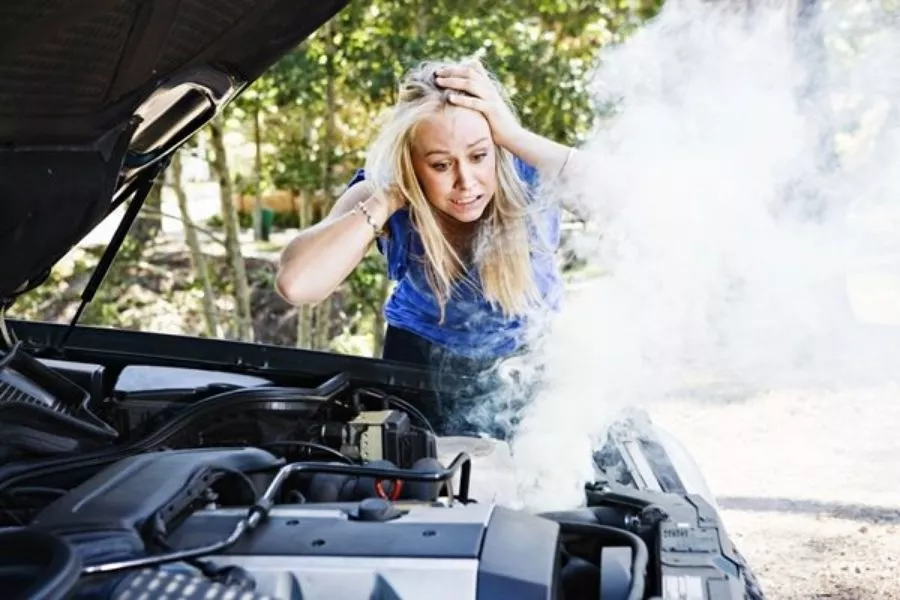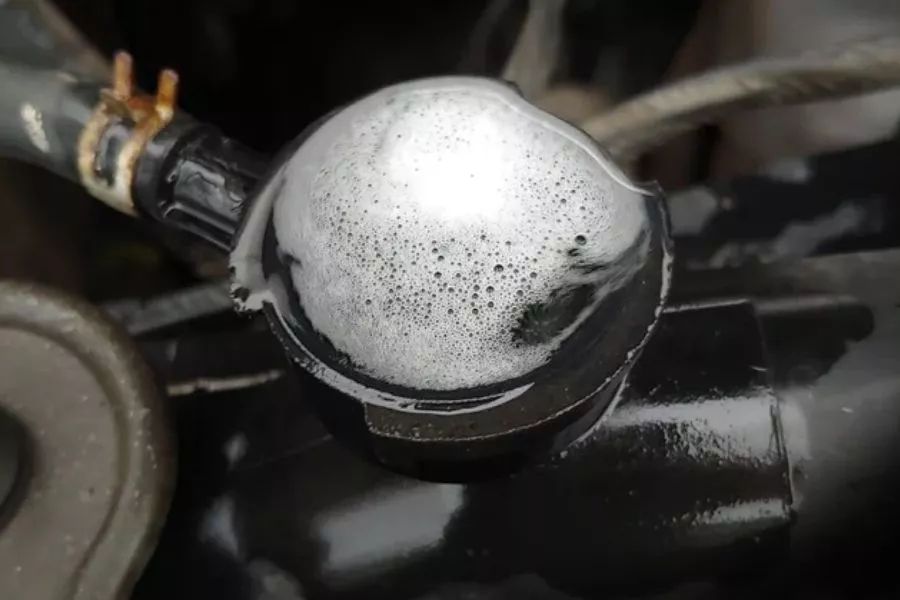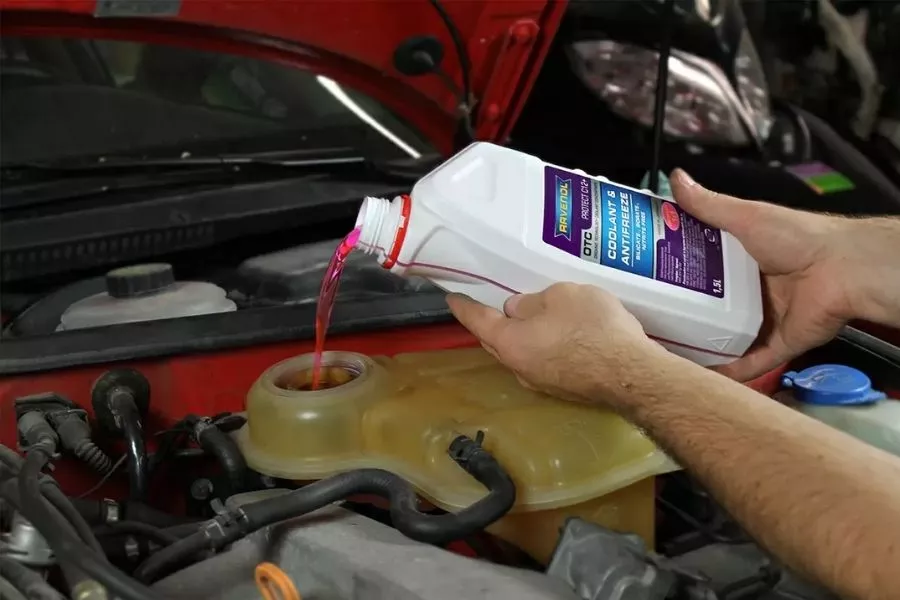Most cars nowadays are still sticking to internal combustion engines. As you know, these engines use fuel which it combusts to generate power.
This process produces a lot of heat. So much so that it will destroy the engine if not managed correctly. As such, modern car designs incorporate a cooling system. The most common of course is a liquid-based heat exchanger in the form of a radiator.

There are a variety of reasons why an engine overheats
Sometimes however, there are several things that can go wrong with a car’s radiator. And even sometimes, your car is overheating with full coolant. So, what might cause a car that’s full of coolant to do this? Let’s find out by listing some common causes.
What causes a car to overheat despite being full of coolant?
Bad radiator cap
As detailed in our radiator cap article, a busted one cannot hold pressure thus coolant cannot effectively travel around your engine’s cooling system. For that matter, a leaky cap will leak your coolant too.
A radiator cap that can’t redirect hot coolant to the overflow reservoir can also cause the radiator hose to collapse. In particularly bad instances, your hoses might even explode. Having a collapsed or blown out hose of course cuts off the flow of coolant to your hot engine, thus causing overheating.
How to Fix a Overheating Car Engine
Dirty/Rusty radiator
A dirty radiator has a high chance of getting clogged. Without proper flow, the coolant cannot transfer the heat that it’s carrying and will recirculate into the engine. This eventually causes the engine to build up more heat.
Moreover, a rusty radiator cannot effectively dissipate heat. So no matter how much coolant you have, it will never be effective as a clean radiator.
![Creamy, chocolate-colored coolant is one sign of a rusty radiator [Photo: Saruni Lenaiyasa] A picture of rusty coolant](https://img.philkotse.com/temp/2024/07/27/rusty-coolant-saruni-lenaiyasa-4bf6-49dc.webp)
Creamy, chocolate-colored coolant is one sign of a rusty radiator [Photo: Saruni Lenaiyasa]
Faulty thermostat
Sometimes, a bad thermostat will give your system a bad reading. This is troublesome since it decides whether or not the engine needs to be cooled or otherwise. Without this part functioning properly, your engine will overheat regardless of whether the coolant is full or not.
Faulty radiator fan
The primary way a radiator transfers heat from the coolant into the atmosphere is by using a fan. Once the radiator fan is out of the picture, heat transfer isn’t likely to happen. When this happens, the hot coolant will once again re-circulate into your engine causing it to build-up even more heat.
Air in the cooling system
Air that has managed to mix in the coolant will cause an inefficient transfer of heat. This is either caused by a leak in the cooling system, a faulty radiator cap, or worse, a leaky head gasket. To fix this, one should vent out the air from the cooling system. This process is known as “bleeding.”

Bubbly coolant overflowing out of the reservoir is also a sure sign of a leaky gasket [Photo: Reddit user vexx421]
Using the wrong coolant
Using the wrong coolant can cause damage to your cooling system. This might result in damage to the radiator, to the many seals and gaskets of the cooling system, and to the water pump.
For that matter, we do not recommend mixing coolants. This is because different coolants might mix together to form a thick slurry.
Being thick, it won’t flow as well and will eventually cause overheating. It might even corrode your radiator’s insides. We also do not recommend using water as a coolant.
In the long run, this might cause rust especially if you were using regular tap water.
>>>> Related: Car maintenance: How to check the engine's good coolant level
My coolant reservoir is full and my car is overheating?
A coolant reservoir is not the main storage unit for your car’s coolant. In fact, it is only there to store excess coolant from a highly-pressurized, hot cooling system.
In normal car operation, the coolant in the reservoir will eventually return to the main cooling system to help with the heat transfer once again.

It is good practice to check coolant levels everyday, and then top-up as needed
If your coolant reservoir is perpetually overflowing and full, it means that there’s something stopping the coolant to return. This is a sign that one or two of your hoses are leaking. Or even worse, your radiator has a hole somewhere. And lastly, a bad radiator cap can also cause this problem.
For more tips on diagnosing cars, car maintenance, and car buying and selling tips, keep reading here on Philkotse.com.
Car's overheating with full coolant: FAQ
1. How much is a bottle of coolant in the Philippines?
Answer: In the Philippines, a typical 1-liter bottle of coolant can cost somewhere between Php 600 to Php 1,000. This depends on the coolant brand and type.
2. How do I fix my car’s radiator cap?
Answer: You can fix a faulty car radiator cap by replacing it entirely.
3. What is car coolant made of?
Answer: A car coolant is typically made out of a mixture of glycol and water.
4. Can I use water instead of coolant?
Answer: While this might work, we do not recommend using water as it might cause damage in the long term. If you really need to use water, then use distilled water instead.
5. How do I top up on coolant?
Answer: If your car comes with a coolant reservoir, top it up from there unless it is totally empty. If it is empty, fill up the radiator first.
Recent posts
- engine warmup necessary Mar 01, 2021
- revving engine before shutoff Mar 01, 2021
- Beat the heat: 8 tips to prevent your car from overheating Jul 18, 2019
- Causes and remedies for overheating automobile engines Mar 06, 2021
- Distilled water vs Coolant: Which is the best product for your radiator? Mar 06, 2021












